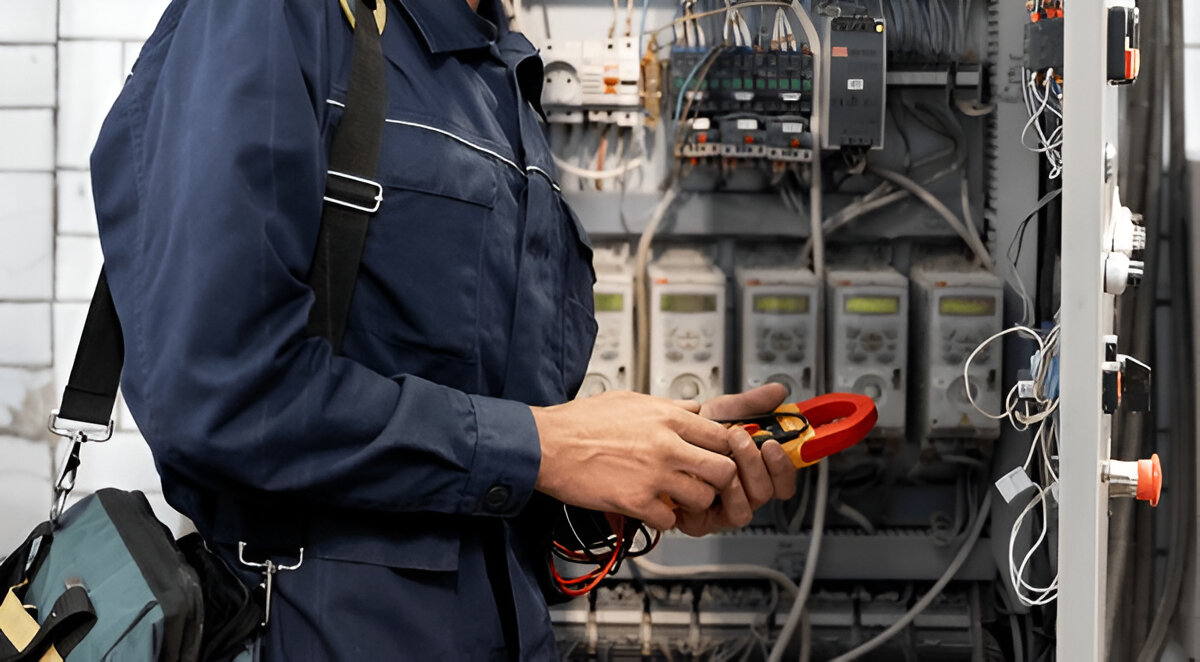In today’s rapidly evolving business environment, efficiency is everything. Commercial workplaces—from office buildings to warehouses and retail centres—are under constant pressure to reduce costs, streamline operations, and improve productivity. One of the most effective ways to achieve these goals is by integrating smart technology into the workplace infrastructure. But implementing such systems requires expert planning and installation, which is where skilled commercial electricians come into play.
With their deep understanding of electrical systems, commercial electricians are essential to the successful adoption of smart technology in any commercial setting. From energy monitoring to automation and security, they help businesses leverage technology to gain a competitive edge.
What Is Smart Technology in Commercial Workplaces?
Smart technology refers to interconnected devices and systems that use sensors, data analytics, automation, and remote control to enhance building performance and functionality. In commercial environments, smart systems are commonly used to manage:
- Lighting and HVAC
- Energy consumption
- Security and surveillance
- Access control
- Workplace scheduling and automation
These systems work together to create a more responsive and efficient environment. When installed and maintained by qualified commercial electricians, they offer both immediate and long-term benefits for businesses of all sizes.
Energy Efficiency and Cost Savings
One of the biggest advantages of smart technology is improved energy management. Traditional lighting and HVAC systems often run on fixed schedules or are manually controlled, leading to wasted energy. Smart systems, on the other hand, use sensors to detect occupancy, daylight levels, and temperature changes in real time.
Commercial electricians are responsible for installing these systems and ensuring they’re optimally configured. For example, they might:
- Install motion sensors that turn off lights in unoccupied rooms
- Set up automated thermostats that adjust based on usage patterns
- Integrate lighting with daylight sensors to reduce artificial lighting needs
Over time, these features can significantly lower electricity bills and reduce a building’s carbon footprint—something that’s increasingly important for businesses aiming to meet sustainability goals.
Improved Security and Monitoring
Security is another area where smart technology is making a big impact. Businesses are now adopting advanced surveillance systems, smart locks, biometric access control, and remote monitoring platforms to better protect their premises.
Commercial electricians play a crucial role in wiring and setting up these systems. They ensure that cameras, alarms, and access points are correctly installed and integrated with the building’s overall electrical infrastructure. In many cases, they also connect these systems to cloud-based platforms, allowing business owners to monitor and control them remotely from smartphones or computers.
The result is a safer, more secure work environment—one that can respond instantly to threats and generate detailed logs for audits or investigations.
Automation and Productivity Gains
In commercial workplaces, time is money. Smart technology allows for the automation of repetitive or time-consuming tasks, freeing up employees to focus on more valuable work. Smart conference room scheduling, automated lighting and climate control, and voice-activated systems are just a few examples.
Commercial electricians ensure that these technologies are seamlessly integrated into a building’s infrastructure. This includes running data cabling, connecting power supplies, and troubleshooting communication between devices.
By creating an environment where systems anticipate needs and adjust accordingly, businesses can minimise downtime, reduce user error, and maintain consistent comfort levels—all of which contribute to higher productivity and employee satisfaction.
Data Collection and Analytics
Smart systems continuously gather data about building operations, from energy usage and occupancy trends to equipment performance. When interpreted correctly, this data offers valuable insights that help businesses make informed decisions.
Commercial electricians ensure that sensors and monitoring systems are properly installed and calibrated to provide accurate, real-time information. They also help integrate dashboards and analytics software that can be used by facility managers to:
- Identify inefficiencies
- Schedule predictive maintenance
- Track resource usage
- Optimise equipment settings
This level of insight allows businesses to adapt quickly, fine-tune operations, and plan for future growth.
Long-Term Scalability and Support
Another advantage of working with skilled commercial electricians is future-proofing. As businesses expand or upgrade their technology, electricians help scale systems without compromising reliability or compliance.
Whether it’s adding new automation tools, upgrading to more efficient lighting systems, or expanding surveillance coverage, commercial electricians ensure that each new component integrates seamlessly with existing infrastructure.
Ongoing support is also vital. Smart systems need regular maintenance and occasional updates, and having a trusted electrician on call ensures that issues are resolved quickly and professionally.
Conclusion
Smart technology is no longer just a luxury for commercial workplaces—it’s becoming a necessity for businesses that want to stay competitive. From reducing energy costs to improving security and streamlining daily operations, the benefits are clear. But to unlock the full potential of smart technology, businesses need the expertise of experienced commercial electricians.
With their technical know-how, attention to detail, and understanding of compliance standards, commercial electricians are the backbone of any smart workplace transformation. When installed and managed correctly, smart systems don’t just improve efficiency—they redefine what’s possible in the modern commercial environment.



